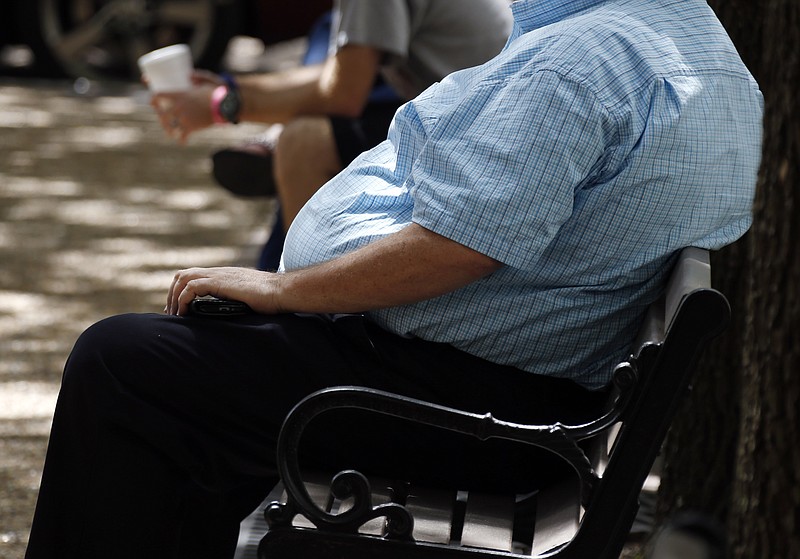Imagine how you'd feel if you didn't get a promotion because of your religion or skin color. The only good news would be that you could probably sue your employer for discrimination.
But what if you didn't get it because you were overweight?
In most parts of the United States, there would be little you could do. But a handful of local and state governments have extended anti-discrimination protection to include weight as a protected class.
Here's a closer look at how it works.
What is a Protected Class?
A protected class is a group of individuals sharing a characteristic that is protected by law. For example, race, national origin, sex and religion are commonly recognized protected classes. Unless an individual is a member of a protected class, they cannot sue for unlawful discrimination. A variety of federal laws establish a number of protected classes, including race, national origin, sex, color, religion, pregnancy, age, disability, familial status and genetic information.
One potential protected class that is still up to legal debate is sexual orientation. Some federal courts, as well as the Equal Employment Opportunity Commission (EEOC), believe that Title VII of the Civil Rights Act of 1964 (Title VII) recognizes sexual orientation as a protected class. However, not all federal courts agree with this reasoning.
Right now, these federally protected classes do not include weight.
Studies Show Employers Discriminate Against Overweight Workers
There is good evidence that discrimination against workers who are overweight occurs. Research data finds that individuals suffering from obesity are more likely to be "stereotyped as lazy, unmotivated, unintelligent, sloppy, and lacking willpower." This happens despite scientific studies showing that genetics play a major role in an individual's weight.
Studies also show that overweight workers likely suffer the effects of these negative stereotypes, including not getting hired or being passed over for promotion. To help combat this discrimination, a few states and cities have anti-discrimination laws that recognize discrimination based on weight.
Currently, only a few jurisdictions prohibit discrimination based on weight in San Francisco, Santa Cruz, California; Urbana, Illinois; Madison, Wisconsin; Binghamton, New York, and through its D.C. Human Rights Act, Washington, D.C.
Weight Discrimination Lawsuits
Given how few jurisdictions recognize weight as a protected class and the prevalence of weight discrimination in the workplace, much of the weight discrimination case law focuses on obesity as a disability. The law is not fully settled on this question, but there is a pending case before the Seventh Circuit Court of Appeals (Richardson v. Chicago Transit Authority, No. 18-2199) that addresses whether obesity is an "impairment" under the Americans with Disabilities Act of 1990 (ADA).
As for lawsuits specifically alleging discrimination based on weight as a protected class, the number of cases is far fewer, although there is one in particular from a few years ago that received a lot of press. The case (Smith v. Hooters of Roseville Inc., Circuit Court for Macomb County, Michigan, No. 10-2213-CD) involved a Hooters waitress from Michigan who claims she suffered from discrimination because she weighed too much despite being 132.5 pounds and 5 feet 8 inches tall.
Unfortunately, the case was not decided on the issue of weight discrimination. After spending time in court arguing whether the waitress had the right to sue or was required to arbitrate her grievance, the case made its way to arbitration where it settled.
One case that concluded on the question of whether an employer was guilty of weight discrimination was Harris v. Hutcheson. In this case, a dental hygienist alleged she was fired because her boss viewed her as being overweight and made constant comments indicating his displeasure with her size. However, she ultimately lost her case because the court concluded that she was fired for her professional conflicts with a recently hired dentist and not for her weight.
The Bottom Line
Weight discrimination creates a significant and often ignored problem in the workplace. A few jurisdictions have recognized this, including Washington, D.C., but more could be done.
Tom Spiggle is author of the book "You're Pregnant? You're Fired: Protecting Mothers, Fathers, and Other Caregivers in the Workplace." He is founder of the Spiggle Law Firm, where he focuses on workplace law helping protect the rights of clients facing pregnancy and caregiver discrimination, sexual harassment and wrongful termination in the workplace.
